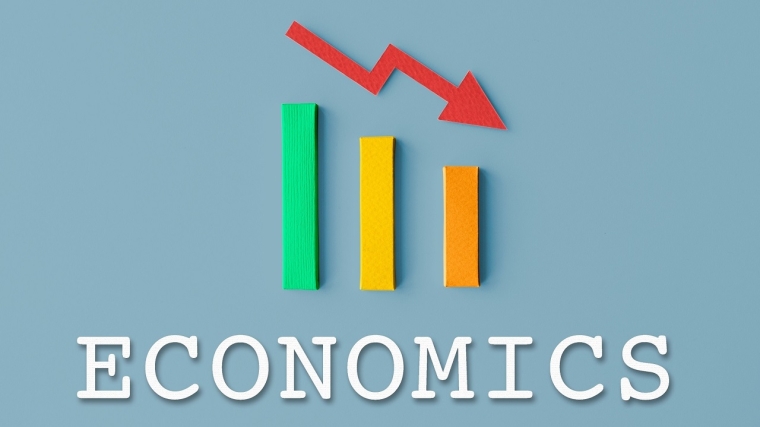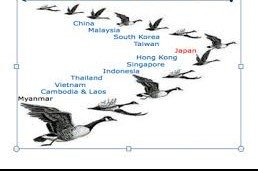
This is a re-post of an article originally published on pundit.co.nz. It is here with permission.
Saburo Okita (1914-1993) was in Manchuria (northeast China), in the port city of Darien (Chinese: Dalien) which was occupied by Japan at that time. Because they were politically unsympathetic to the increasingly militaristic occupation regime, his family moved in his teenage years back to Tokyo, where he graduated in electrical engineering and joined the civil service. During the Second World War, and despite reservations about Japan’s war policy, he was involved in managing the supplies of raw material such as coal and iron necessary for the war economy and food.
Japan lacks sufficient local supplies of many of these critical resources. One of the reasons for its territorial ambitions was to secure alternate supplies by conquest. Manchuria was a key source.
Defeated Japan was grim. Okita set up a group immediately after the war to plot the economic recovery. It met in a half-destroyed building. Many of the official records they needed were missing and they lacked even paper. Okita’s home had been bombed and he and his family had to pile in with the in-laws. He had to scrounge for potatoes and other basic food.
Bollard uses Okita’s life to describe the Japanese recovery from this misery to become one of the strongest economies in the world with Okita playing a central role in the planning and advice system, although he was never Minister of Finance.
As the economy flourished, he moved into the international arena including chairing the Pacific Economic Cooperation Council in Bangkok from 1986 to 1988.
In the course of his career, he helped develop a solution to the Japanese resource deficit which did not involve conquest and colonisation. The alternative was trade. New Zealand is a beneficiary. We were on the edge of the Greater East Asia Co-Prosperity Sphere, the creation of which was a Japanese objective in WWII. Instead, Japan is our fourth largest export market, and an integral part of the East Asian economy which New Zealand depends upon.
If a Japanese empire was not realised, neither were some of the victors’s plans. They wanted to ensure that after their defeat Japan and Germany would revert to rural economies, unable to provide the advanced technological resources to pursue modern warfare. Wiser heads (and the need to resist Communism) prevailed and today both countries are advanced economies playing an important role in the liberal international order. (On the other hand, Russia and North Korea demonstrate that less developed economies can sustain militarily aggressive intentions – at enormous cost to their populations.) This is an important lesson to be recalled if the West ‘defeats’ Russia. Putin’s claim the West wants to dismantle Russia. The West should make it clear that it wants Russia to be a part of a civilised, affluent, peaceful world. (That Japan transformed successfully might provide some optimism for such a goal.)
Okita and other Japanese economists of his time explained this international economic interdependence as ‘flying geese’. As characterised by the diagram of a flock of birds flying in a V-shaped formation, there is a leader with the rest tucked in behind it, benefiting from those in front. *

The flying geese model is intuitively attractive to explain the evolving pattern of East Asian development despite significant differences in resource endowments. As Bollard writes:
The model can also be applied to the development of the European economy and to the North American economy (applied to regions and not just countries). Observe too, that in long flights the lead bird will ease back and another take over. Is China doing that? (Although you cannot see it, there is a small dot at the back of the right wing of the V; that’s us – New Zealand.)
Bollard contrasts Okita with Zhou Enlai (1898-1976) who also had a turbulent life until 1949 when the Chinese Communist Party took over the governance of China, and he came second only to Mao Zedong; unlike the latter he was a stabilising force.
Okita and Zhou met on a number of occasions. Bollard’s description of a conversation in 1971 is revealing.
“As Zhou saw it, the main purpose of economic growth was to build defence and security, and Japanese growth could drive the country back to Manchuria in search of resources. Okita had been an advocate of peace policies in Japan, and he objected to the argument, saying the purpose of Japanese growth was to give its citizens better living standards and its consumers more choice. Indeed Japan’s internationalization would likely constrain militarism. The debate continued for some hours and, while very civil, there was no agreement. Zhou’s argument, that the economy must serve strategic national interests rather than improving the material lives of citizens, had deep roots in Chinese history but also fitted Communist Party thinking in many Cold War States. What was the real role of economics? To Okita, it was consumption for individual welfare, to Zhou it was production for state security.”
The answer remains unsettled. (In contrast, the big economic question of how to organise a modern economy – getting the balance between markets and planning – is much better settled. The review of Bollard’s Economists in the Cold War which explores this is here.) You can easily identify countries which prioritise national security over their citizens’ wellbeing. Zhou’s strategy may still dominate Chinese thinking. Even though its citizens have experienced substantial rises in their material standards of living, there is a growing popular desire for their interests to be given greater weight.
It is easy to claim that Okita’s rather than Zhou’s strategy has long applied in New Zealand. Recall that during the trench warfare of the Great War – which has similarities to what is going on in today’s Ukraine – the New Zealand leadership was not nearly as ready to sacrifice its troops in the way the British military command seemed to and which appears to be the Russian approach in its Ukraine invasion. On the other hand, our commentariat often gets carried away with describing the economy as an entity which has a significance beyond that of the citizens. I am reminded of the sentiment: ‘my economic advisers tell me the economy is doing well, but I know the people are not.’
* I wish they had chosen swans rather than geese. One of the most moving moments in music is the glorious ‘swan theme’ in the final movement of the Sibelius Fifth Symphony.
*Brian Easton, an independent scholar, is an economist, social statistician, public policy analyst and historian. He was the Listener economic columnist from 1978 to 2014. This is a re-post of an article originally published on pundit.co.nz. It is here with permission.
6 Comments
Good article. Particularly as it explains China's philosophy which is probably not something that many ever think about when they talk of China. The Chinese, particularly the older ones, are quick to point out how they were 'bossed around' and 'humbled' by western powers. They just need to be careful that they pick up on the phase, 'with greater power comes a greater responsibility', as too many of the younger Chinese believe it is now their turn to throw their weight around. Ditto nationalist factions in India.
What is the purpose of economists is a bigger mystery and when they don't even understand the subject that they profess to be expert in.
Agreed. And it isn't a good article - it's an economist commenting on an economist.
I have Bollard's Crisis in my bookshelf - I scrawled 'totally ignorant' inside the cover, post-read.
When folk don't have resource-competition and energy-availability on their radars, how in h-ll can they pontificate meaningfully? Or be involved in infrastructure - which last time I checked, was physical.
Comparative advantage.
It's why we export raw materials and import those same raw materials back as finished goods.
Were the true costs of all this, e.g. environmental impacts, worker exploitation, etc., were included in the cost of the product I suspect we'd not be doing this.
Good article.
Thank you for the reinforcement.
:)

We welcome your comments below. If you are not already registered, please register to comment
Remember we welcome robust, respectful and insightful debate. We don't welcome abusive or defamatory comments and will de-register those repeatedly making such comments. Our current comment policy is here.